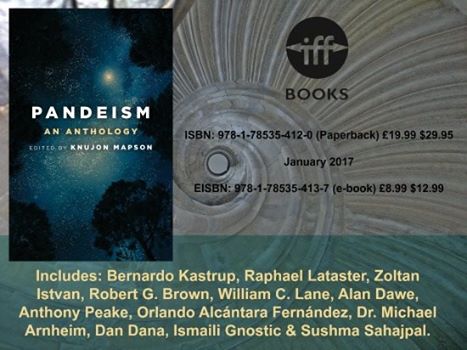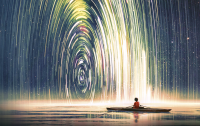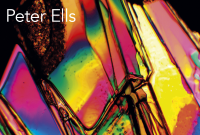
An excerpt from the Pandeism Anthology:
“Omniscience, Omnipotence and Pantheism,” by Richard Francks PhD, sets the stage with an observation on the nature of omniscience as applied to experiential knowledge. Next, “Leibniz’s Best World Claim Restructured,” by William C. Lane, presents a tour-de-force of moral consequence, explaining how a creator wholly becoming the creation— without knowing in advance every negative consequence of that happening, and yet bearing all such consequences—escapes the ‘problem of evil’ while exhibiting one aspect of a maximally loving being: maximal closeness to that which is loved.
Zoltan Istvan, in “Transhumanism and Theistcideism,” contemplates the drive of living things to live, and of intelligent life to better itself, achieving some remarkable conclusions about the desire of nonomnipotent beings to obtain omnipotence—and of an omnipotent being to destroy itself and begin anew. Following another poetic interlude, “Pantheistic Reflections,” by Poffo Ortiz, introduces us to the pandeistic notion of biopantheism, and powerful arguments of pantheist/pandeist morality.
Lastly, in “Pandeism, the Holographic Universe, and Simulation Theory,” Anthony Peake considers the evidence for the popular theory that our Universe is itself a simulation—and how this too is a concept consistent with a pandeistic Universe.
Buy the paperback - AMAZON US AMAZON UK HIVE INDIEBOUND
Buy the ebook - AMAZON US AMAZON UK HIVE INDIEBOUND
Categories:
0 comments on this article








